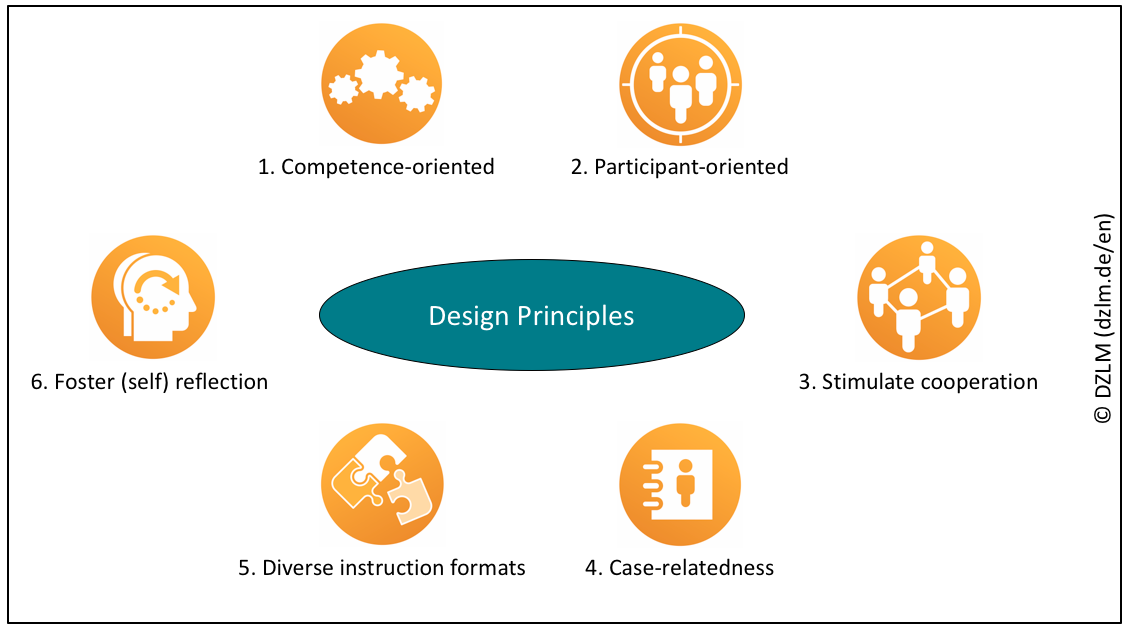Principles for effective professional development
Several literature reviews and meta-analyses summarise evidence of the effectiveness of various projects and initiatives concerning professional development (Lipowsky 2011, Lipowsky & Rzejak 2012, Timperly et al. 2007, Yoon et al. 2007). Approaches to professional development differ considerably as education systems, their goals and organisational structures vary across the globe. However, a number of principles for designing successful approaches towards continuing professional development (CPD) emerge from these analyses and have been summarised by the DZLM (Deutsches Zentrum für Lehrerbildung Mathematik/ German Centre for Mathematics Teacher Education, Barzel & Selter 2015).
 Principles for effective continuing professional development (CPD)
Principles for effective continuing professional development (CPD)
When planning professional development courses or sessions, these principles should be considered and implemented.
Click on the following link for more information about the research findings and these Principles for effective CPD.
References
- Barzel, B., Selter, C. (2015). The DZLM design principles for in-service teacher education. JMD, Journal für Mathematik-Didaktik, 36(2), 259–284.
-
Desimone, L. M., Porter, A. C., Garet, M. S., Yoon, K. S., & Birman, B. F. (2002). Effects of professional development on teachers’ instruction: Results from a three-year longitudinal study. Educational evaluation and policy analysis, 24(2), 81-112.
-
Garet, M. S., Cronen, S., Eaton, M., Kurki, A., Ludwig, M., Jones, W., … & Zhu, P. (2008). The Impact of Two Professional Development Interventions on Early Reading Instruction and Achievement. NCEE 2008-4030. National Center for Education Evaluation and Regional Assistance.
-
Lipowsky, F. (2011). Theoretische Perspektiven und empirische Befunde zur Wirksamkeit von Lehrerfort-und-weiterbildung. Handbuch der Forschung zum Lehrerberuf, 398-417.
-
Lipowsky, F., & Rzejak, D. (2012). Lehrerinnen und Lehrer als Lerner–Wann gelingt der Rollentausch? Merkmale und Wirkungen wirksamer Lehrerfortbildungen. Schulpädagogik heute, 3(5), 1-17.
-
Timperley, H., Wilson, A., Barrar, H., & Fung, I. (2008). Teacher professional learning and development.
-
Yoon, K. S., Duncan, T., Lee, S. W. Y., Scarloss, B., & Shapley, K. L. (2007). Reviewing the Evidence on How Teacher Professional Development Affects Student Achievement. Issues & Answers. REL 2007-No. 033. Regional Educational Laboratory Southwest (NJ1).
